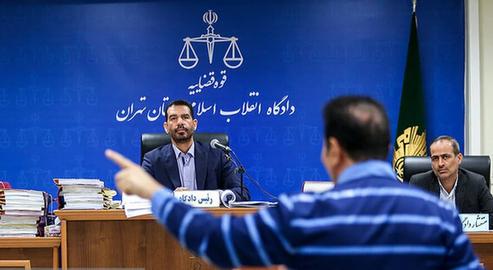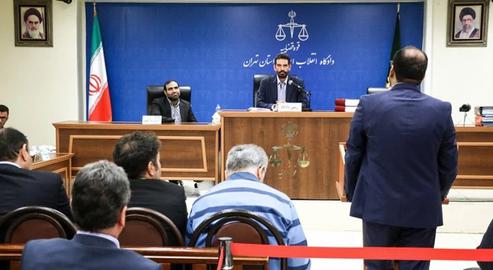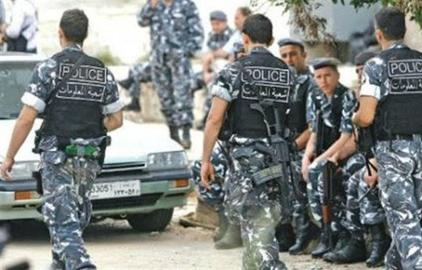The verdict in a massive corruption case involving the Iran Petrochemical Commercial Company (PCC) was announced on September 5, 2021. But nearly three years after proceedings first got under way, the details remained shrouded in mystery.
We were told at the time that 15 named defendants had been sentenced to a total of 180 years in prison, linked to the embezzlement of around €6.6bn. But curiously for Iran, none of them were in custody at the time the sentences were issued. Most were out on bail, and a handful had even managed to leave the country.
IranWire has now gained access to the 2,000-page judgment, issued by Judge Asadollah Masoudi-Magham in Branch 3 of the Special Corruption Court. The contents shed light on the sheer extent of mafiosi behavior, graft, cronyism and money laundering in Iran’s still-lucrative petrochemical industry – and on how far the 15 convicted men were aided and abetted by dozens of others, many in positions of power.
One of the most unsavory aspects of this debacle is now many individuals in key arms of the Iranian state, who are supposed to guard against corruption, actively enabled it in the case of the PCC. Our previous article looked at the kickbacks received by Intelligence Ministry personnel to turn a blind eye. In this article we review the role of Iran’s General Inspection Office, which is supposed to supervise the work of all state institutions, including the military, the police force, state-run companies, and any institution wholly or partially financed by the government. In the PCC case, the record makes for similarly grim reading.
***
On July 25, 2020, in the fourth session of the seismic trial over embezzlement at the Iran Petrochemical Commercial Company (PCC), Judge Asadollah Masoudi-Magham turned to the charges against a number of employees of the country’s General Inspection Office (GIO).
“Many employees of the companies [involved] first worked for various [government] organizations and were employed by these companies later. This, by itself, is an indication of bad faith. People like Messrs. [Naser] Enayati and [Majid] Tajdari were responsible for investigating this case at the General Inspection Office and were then hired by the companies.”
Commenting in Persian-language media on the judge’s pronouncement on the same day, Iman Shamsai, secretary of the GIO’s Information Committee, said: “The persons to whom the judge referred are no longer with the General Inspection Office. In 2016 and 2017, they either left or their contracts expired. So far, no charges have been brought against them.”
It is true that in the end, formal charges were only brought against 15 individuals. But the verdict shows that these two people, Naser Enayati and Majid Tajdari, had been suspected of involvement in the case since at least 2012.
A PR Disaster
In a meeting on March 12, 2019, a meeting took place in the presence of PCC managers, bosses at the National Petrochemical Company, and members of the GIO. Mohammad Azizi, chairman of the Iranian parliament’s Subcommittee on Petrochemicals, told those present that growing awareness of the case was damaging public trust in the industry and those tasked with overseeing it.
“The report [on the PCC case] submitted by the Inspection Office is very different from reports published by the media,” he said cryptically. “Unfortunately, the publication of such reports in the media and on the web has undermined public trust. Seven million euros is a huge sum.
“Given the present [economic] climate, everybody is talking about it. Some have said that with this much money we could have built seven Burj Khalifas Towers or seven recreation complexes like Dubai Mall.”
But he went on to say: “Such mistrust must not be encouraged, because the corruption has not been proven and public trust must not be undercut by such bleak portrayals.” This frank assessment was indicative: behind the scenes there was a vast, systematic effort to conceal the details of the PCC fraud that went far beyond the actions of the perpetrators themselves.
Accused but Immune
Naser Enayati was formerly the chief inspector for the National Petrochemical Company and its affiliates – including the PCC – at Iran’s General Inspection Office. Majid Tajdari, meanwhile, was a lower-level employee and “case expert” tasked with monitoring the operations of the PCC specifically.
According to findings on Page 7 of Asadollah Masoudi-Magham’s verdict, “numerous letters” about these two officials had been sent “to the prosecutor’s office of Tehran’s General and Revolutionary Court... [but] even judiciary officials achieved no result and the case remained open without an investigation.” He turned on the prosecutors working under him in his own court, saying it appeared they had “no structure in place” to deal with would-be defendants with government or supervisory roles.
Neither Enayati nor Tajdari were ever charged with any offence despite how frequently their names came up in connection with the case. On May 15, 2015, Enayati was replaced at the GIO by a man named Hamid Reza Miri Disfani. In a meeting to bid Enayati farewell and introduce his successor, Abbas Sheari Moghaddam, then director-general of the GIO’s Petroleum Affairs Inspection Department, said: “The reason for our former chief inspector’s departure is for him to use his experience in other areas of the petroleum industry.” In other words, Enayati did not get so much as a slap on the wrist for the mass creaming-off of public funds that had happened at PCC during his tenure.
A ‘Rejected’ Million-Dollar Bribe
Between 2009 and 2013 while the illicit activities were going on, the directors of the PCC, writes Judge Masoudi-Magham on Page 131 of his verdict, committed blunders “so visible and obvious to page 131 of the verdict’s part 1, directors of PCC “were seeking to personally gain through any means, from exporting products, to obtaining loans through customs release forms for petrochemical products, to exploiting currency [deposits] abroad. Their blunders were so visible and obvious that they were reported to the proper authorities such as the CEO of the National Petrochemical Company, the Ministry of Intelligence and the General Inspection Office. But no action was taken against them.”
Further along on Page 369, Masoudi-Magham singles out the GIO and its then-chief inspector for petrochemicals, Naser Enayati, for further criticism. “My Abbas Samimi [one of the handful defendants in the PCC case who were eventually convicted] asked Mr. Jalil Sobhani [CEO of the Petrochemical Industries Part, Equipment and Chemicals Engineering Company (SPEC), an affiliate of the PCC] to tell Mr. Enayati they would give him one million dollars if he did not send the case to the GIO. Mr. Enayati rejected this offer and passed the case on. But the GIO never followed up.”
At one stage, 750 million euros’ worth of money that by rights belonged to Iranian oil companies found its way into Deniz Company, a legal entity owned by two of the defendants. That case, Page 709 of the judgment states, “has remained dormant at the General Inspection Office”.
Family Ties, and Bribes Redux
Why the inaction? Elsewhere in the verdict, Masoudi-Magham highlights the presence of family ties between Haj Habibollah, a former deputy intelligence minister and vice-president of the GIO at the time, and several of the PCC defendants. The judge’s conclusion is that it was these familial relationships that led to some of the crimes not being investigated at the time.
Then on Page 758, it is revealed that Enayati was on the take – just more indirectly. “From time to time,” writes the judge, “and using the pseudonym Mohammadi, the defendant Shir-Ali [Mohammad Hossein Shir-Ali, one of the 15 principal defendants] met with Mr. Enayati, the representative of the General Inspection Office. Mr. Enayati was financially supported by Jalil Sobhani.”
Jalil Sobhami was the then-CEO of Iran’s Petrochemical Industries Part, Equipment and Chemicals Engineering Company (SPEC) and a shareholder of Iran Investment Company, the PCC’s parent company. He was initially indicted but the charges against him were dropped before the case came to trial.
According to Page 889 of the verdict, inFebruary 2013 a report into the PCC’s finances by its own appointed external auditor, Rahyaft Audit and Management Services was due to be sent on to the General Inspection Office and Iran’s Privatization Organization. Yet again, as a result of this, Masoudi-Magham observes: “No effective action was taken.”
Who Had the Final Say on GIO Business at the Time?
The GIO is technically an arm of the Iranian judiciary, and final oversight of its activities is undertaken by the Chief Justice of Iran. It was established in accordance with Article 174 of the Iranian Constitution, which states that at all times, an organization under the judiciary must be tasked with ensuring “the proper conduct of affairs and the correct implementation of the law by the administrative organs of the government”.
The statute that created the GIO was passed by the first parliament of the Islamic Republic in 1980. It has been updated several times since then, in 1996, 2008 and finally 2014. The final version stipulates that the GIO has the duty to audit all state institutions, up to and including the police, the military, state-run entities and any institution that derives all or part of its income from the government. It is empowered to conduct inspections on a case-by-case basis and inform the proper authorities of financial transgressions. This was a duty that, as the court’s verdict informs us, the GIO abjectly failed to honor in respect of the PCC.
The recorded embezzlement took place between 2009 and 2013. At that time Mostafa Pourmohammadi, a former deputy intelligence minister under Akbar Hashemi Rafsanjani and Mahmoud Ahmadinejad’s interior minister, was the serving head of the GIO. He went on to serve as justice minister under Hassan Rouhani, from 2013 to 2017.
The then-chief justice with final say over the GIO’s affairs was Sadegh Amoli Larijani. A mass of other corruption scandals erupted during his tenure, such as the case of Akbar Tabari, which were not dissimilar in scope to that of the PCC. Many of them only came to light years later, probably to some extent for political reasons. Notably, Jalil Sobhani and a few other individuals were defendants in both the PCC and Akbar Tabari cases. But Sobhani, too, survived both cases unscathed.
Related coverage:
Iran's Great Petrochemical Corruption Scandal, Part I: The Ones That Got Away
Iran's Great Petrochemical Corruption Scandal, Part II: Buying Off the Intelligence Ministry
Who's the Mysterious Survivor of Two Grand Corruption Cases in Iran?
From Luxury Villas to Defrauded Banks: The Mother of All Corruption Cases Gets Under Way in Iran
Government Report Reveals More Corrupt Privatization Practices in Iran
Corrupt to the Core: The Long List of Corrupt Iranian Officials
Sanctions on Iran’s Petrochemical Products: A Heavy Blow to the Economy
How the Corruption Mafia Took $30 Billion out of Iran in One Year
The IRGC Commercial and Financial Institutions: Khatam-al-Anbiya Construction Headquarters
visit the accountability section
In this section of Iran Wire, you can contact the officials and launch your campaign for various problems


























comments